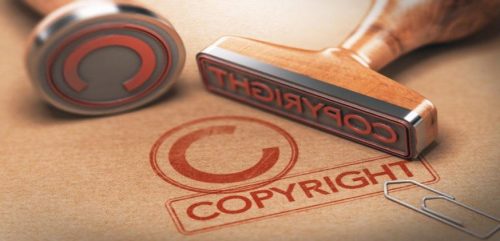
The age of technology, the internet, and digital marketing as a lucrative career option has triggered a vast array of professions. Any individual can identify their talents and aptitude and get the necessary training to work creative jobs that don’t suck. You could be a content writer ideating articles and blogs or perhaps, a UX designer responsible for developing web designs that are appealing and incentivize customers to purchase the company’s products and services. Other creative positions include graphic designer, virtual reality developer and editor, email marketing specialist, and image editor.
You Must Protect the Intellectual Property (IP) You Create
When creating and sharing their intellectual property online, few professionals think about getting copyright protection for their work. But the law entitles you to have a say in how your content and any other IP are published, distributed, and used. As your copyright lawyer will advise, as long as you haven’t signed any agreement passing your rights on the material to anyone else, you’ll retain control on the work. In other words, you have default ownership of the IP unless you formally cede control and it is expressly mentioned in writing.
Working for an Employer or Company
If you work for a company or an employer hires you to create the materials for a price, the work becomes the property of the entity commissioning the work. This rule applies regardless of whether you hold a full-time position in the organization or you are a freelancer. Most companies get their employees to sign a contract where they retain complete rights on how the materials will be used, published, and distributed. They can also determine how and when the work can be reprinted or sold. You can, however, request to include a limited license clause whereby you’re permitted to share the IP on your portfolio or website for advertising purposes only.
Working in Collaboration with a Team
When you’re working as a part of creative team, the dynamics of the copyright change completely. Since you’ll contribute to the creation of the intellectual property, you must make sure your rights are protected. Irrespective of your relationship with the team members, it is advisable to draw up a formal contract that clearly indicates who retains the ownership rights to the materials. Your agreement should also include information about who monetizes the IP and how the proceeds will be shared. Laying down the rules will ensure that you are duly compensated for your work even if the partnership sours down the line.
Secure Your IP by Getting the Copyright Registered
Having created intellectual property and designs, your first step should be registering a copyright on the materials. A legal copyright is proof of property and protects your work from being exploited. With the assistance of an experienced lawyer, you can complete the process for a cost of $35 to $55 per registration. Both individual and team collaborators can apply for and get the copyright. In case of an infringement, you can move the court for statutory damages. Expect to get awarded amounts from $750 to $30,000 to cover your court costs, legal fees, compensation per IP.
Getting a Copyright Notice
A copyright notice is not the same as getting the copyright registered. However, you can use this strategy to deter people from infringing on your IP. Before publishing any materials, add your name and year of first publication in the work. You’ll also add a “C” within a circle, the word “Copyright,” or the abbreviation “Copr.” In this way, you’ll indicate that ownership of the materials.
Secure your materials and intellectual property legally by getting a copyright registration. Hire an experienced attorney to make sure you get the procedures right.
Interesting Related Article: “Ways Legal Considerations Protect your Brand“

